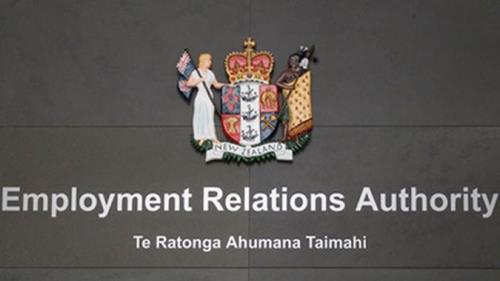Reinstatement is now a primary remedy
5 July 2019

The passing of the Employment Relations Amendment Act 2018 ushered in a range of employment law changes. The change with perhaps the lowest profile was the re-establishment of reinstatement as a primary remedy.
Reinstatement is one of several remedies for a personal grievance that can be awarded by the Employment Relations Authority or the Employment Court. This remedy restores the employee to their former role or to a role that is no less advantageous to the employee.
Prior to the 2018 reform, the law was that if the employee establishes a personal grievance and wished to be reinstated, the Authority or court had the discretion to order reinstatement if it was practicable and reasonable. The law had been that way since 2011.
Now, that discretion is removed and the Authority or court must provide for reinstatement wherever practicable and reasonable, regardless of what other remedies it may provide.
A recent Employment Court case, Rayner v Director-General of Health [2019] NZEmpC 65, demonstrates the wide scope of what may be considered 'reasonable and practicable' in considering reinstatement.
Mrs Rayner worked at the Ministry of Health from 2005, initially as an auditor and then as an investigator of fraudulent activity. In applying for the investigator role, Mrs Rayner outline her previous relevant work experience in the UK.
Throughout her employment, Mrs Rayner was subject to three anonymous complaints alleging she had lied about her qualifications and experience. The first, in 2007, was resolved after her manager made enquiries with her UK referees. The second, in 2010, was resolved after an investigation in which Mrs Rayner provided comprehensive evidence of her previous roles from which the investigator determined that she was being truthful.
The third complaint came in 2017 and a further investigation was commenced with a new investigator. During the investigation, Mrs Rayner challenged the need for further enquiries in the UK and made a number of defensive statements including that she did not trust her managers and that she was being victimised.
Ultimately, the investigation found that, like the previous two complaints, the third complaint was not substantiated. However, the Ministry still dismissed Mrs Rayner on the basis that her conduct during the investigation had destroyed the relationship of trust and confidence.
The Employment Relations Authority found that she had been unjustifiably dismissed and awarded her 3 months wages and $20,000 compensation for hurt and humiliation. However, the Authority discounted the award by 15% for contributory conduct and did not reinstate her.
Both parties appealed to the Employment Court which upheld the Authority finding but increased the compensation to six months lost wages and $42,500 compensation for hurt and humiliation, without reduction for contributory conduct.
Of most note however is the Court's decision on reinstatement. Mrs Rayner's case was determined under the former provision, in which the Court had discretion as to whether or not to order reinstatement, even if all the required conditions were fulfilled.
The Court found that reinstatement was reasonable, but reinstatement to her original role as investigator was not practicable. However, the Court evaluated that reinstatement to an alternative role as auditor would be practicable, even though she would still be interacting with her former Team Leader. In addition, this finding was despite the fact that Mrs Rayner was in receipt of ACC due to a shoulder injury and was not yet fit to work at the time of the judgement.
The Employment Court elected to use its discretion to reinstate Mrs Rayner to the Auditor role as soon as she had sufficiently recovered from her injury. However, the Judge did recommend the parties to mediation to discuss the arrangement relating to Mrs Rayner's return to work.
As the law stands today, the Court would have no choice as to whether to order reinstatement in Mrs Rayner's case once it was determined that it was both reasonable and practicable.
This demonstrates the width of the scope of what can be considered "practicable" - the Court found that placement in a different role that still had interactions with a former manager and despite being unable to work for an undetermined period of time was still practicable and reasonable.
This broad standard is in line with the purpose of the reform which is to prevent the 'licensing' of unjustified dismissal by routinely ordering compensation for job loss rather that restoring the employee with what they actually lost. This raises the stakes in termination situations as reinstatement orders may become more common.
However, reinstatement was the primary remedy prior to 2011 and the shift away from being a primary remedy did not appear to significantly reduce the number of reinstatements. Only time will tell whether this reform will have the desired effect.


